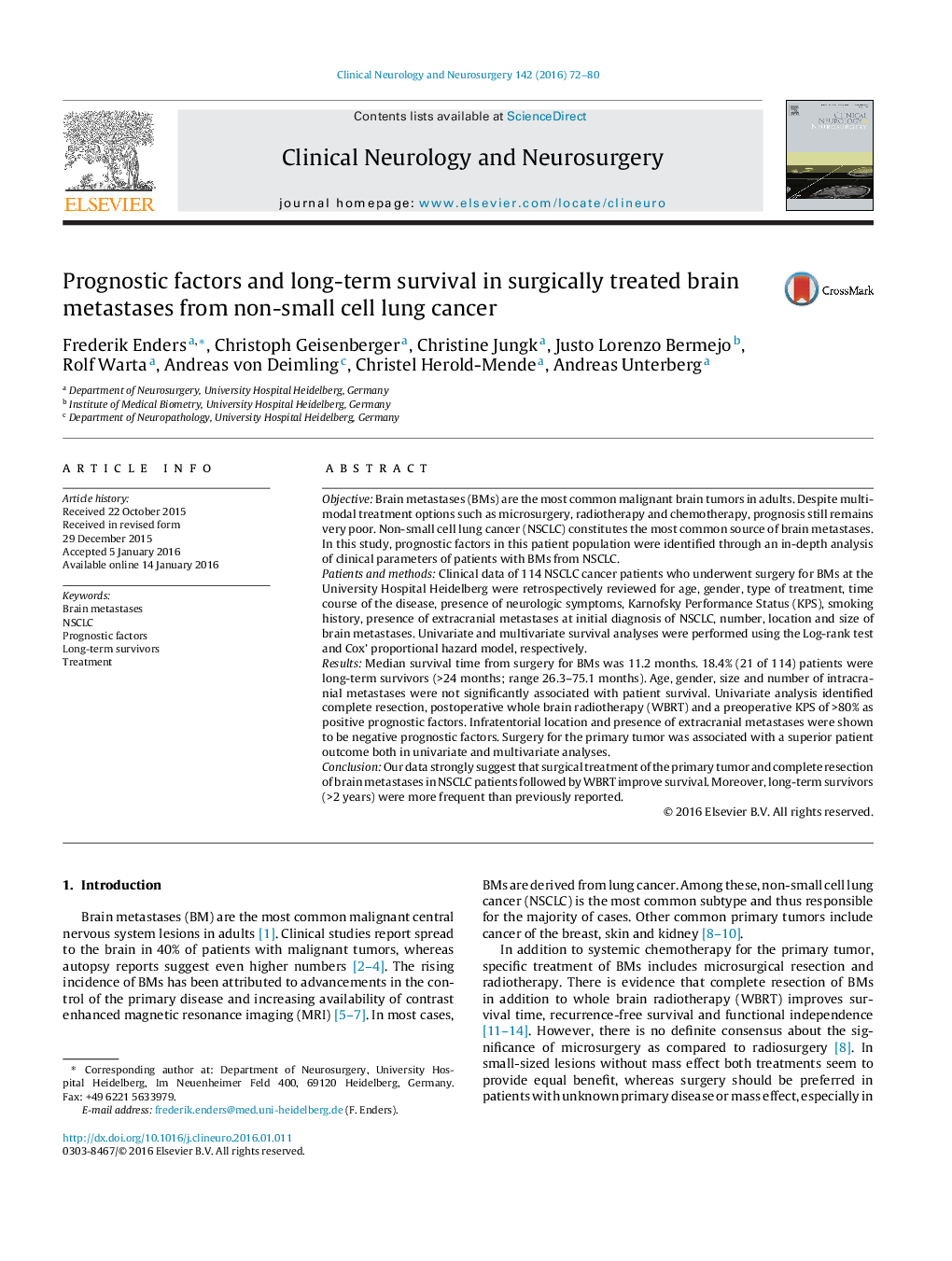| کد مقاله | کد نشریه | سال انتشار | مقاله انگلیسی | نسخه تمام متن |
|---|---|---|---|---|
| 3039554 | 1579680 | 2016 | 9 صفحه PDF | دانلود رایگان |
• 114 patients with brain metastases from non-small cell lung cancer were analyzed.
• Prognostic factors related to the primary tumor and metastases were identified.
• Long-term survivors (>2 years) are more common than reported in the literature.
ObjectiveBrain metastases (BMs) are the most common malignant brain tumors in adults. Despite multimodal treatment options such as microsurgery, radiotherapy and chemotherapy, prognosis still remains very poor. Non-small cell lung cancer (NSCLC) constitutes the most common source of brain metastases. In this study, prognostic factors in this patient population were identified through an in-depth analysis of clinical parameters of patients with BMs from NSCLC.Patients and methodsClinical data of 114 NSCLC cancer patients who underwent surgery for BMs at the University Hospital Heidelberg were retrospectively reviewed for age, gender, type of treatment, time course of the disease, presence of neurologic symptoms, Karnofsky Performance Status (KPS), smoking history, presence of extracranial metastases at initial diagnosis of NSCLC, number, location and size of brain metastases. Univariate and multivariate survival analyses were performed using the Log-rank test and Cox’ proportional hazard model, respectively.ResultsMedian survival time from surgery for BMs was 11.2 months. 18.4% (21 of 114) patients were long-term survivors (>24 months; range 26.3–75.1 months). Age, gender, size and number of intracranial metastases were not significantly associated with patient survival. Univariate analysis identified complete resection, postoperative whole brain radiotherapy (WBRT) and a preoperative KPS of >80% as positive prognostic factors. Infratentorial location and presence of extracranial metastases were shown to be negative prognostic factors. Surgery for the primary tumor was associated with a superior patient outcome both in univariate and multivariate analyses.ConclusionOur data strongly suggest that surgical treatment of the primary tumor and complete resection of brain metastases in NSCLC patients followed by WBRT improve survival. Moreover, long-term survivors (>2 years) were more frequent than previously reported.
Journal: Clinical Neurology and Neurosurgery - Volume 142, March 2016, Pages 72–80
